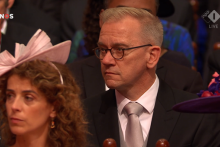The universities will already be affected by the cutbacks next year, the budget of the Ministry of Education, Culture and Science for the year 2025 shows. Universities of applied sciences won’t be hit quite as hard. Most of the plans were already known, but now they’ve been concretised with the exact amounts and dates.
Slow-progress penalty
The slow-progress penalty is to start paying off in 2026: 95 million euros. In the years after that, this amount will be over 280 million euros. That’s what it says in the budget, at least, even though officials warned last spring that this cost saving cannot be made that quickly.
Internationals
Something similar applies to the reduction of the number of international students. The cabinet is counting on saving 29 million euros in 2026, climbing to 272 million euros three year later.
But higher education institutions have to cooperate on this, and according to the officials they ‘don’t benefit from it directly’. So the question is whether there will actually be fewer international students and, if so, how much fewer.
Cabinet wants to talk
Nonetheless, higher education institutions will have to realise the aforementioned savings one way or another. ‘The budget cuts come to a hefty total”, Minister of Education Eppo Bruins acknowledges in a press release. “The exact shape those cuts will take is not yet set in stone in all cases.’
In any case, the cutbacks will not be withdrawn for the moment. In their outline agreement, the coalition parties agreed that ‘setbacks’ will be compensated by the ministries themselves. In other words, if one cutback isn’t feasible, it will be replaced by another.
Research at universities of applied sciences not affected
The cabinet is cutting research budgets, but the universities of applied sciences appear to escape unscathed. ‘Practice-oriented research will not be affected and can therefore continue normally’, says the budget. Until and including 2031, an annual sum of 39 million euros will remain available for this research at universities of applied sciences.
Sector plans
At first, the cabinet wanted to scrap the ‘sector plans’ with effect from 2026, saving 215 million euros per year. These are national plans for collaborations between universities in all kinds of disciplines, for which they were going to get extra money.
The universities threatened to take the government to court over this cutback. The cabinet is now cutting something else, namely the starter grants, at whose expense the sector plans will be upheld.
Starter and incentive grants
Bruins is cutting 175 euros from the ‘starter grants’ for assistant professors who get a permanent contract. The grants allowed these assistant professors to conduct research at their discretion. This would lighten their workload and the pressure on the Dutch Research Council (NWO).
Those who can calculate fast see a difference of 40 million euros between the 215 million euros of the sector plans and the 175 million of the starter grants. As the cabinet does want to end up with the same amount saved, it’s doing the following: the cutback will take effect one year earlier (next year already) and it will be at the expense of NWO from 2030 (see below).
The incentive grants (which are also intended for curiosity-driven research and which universities can divide up as they see fit) are more than halved. They will be cut by 82 million euros per year, leaving an annual budget of 78 million euros. This will run until 2031.
Sector plans at expense of NWO
In order to uphold the sector plans of universities, research funding body NWO will be cut by 26.6 million euros in 2030, which will rise to 40 million euros per year as of 2031.
NWO will also have to forego 30 million euros for new large-scale scientific infrastructure, and 10 million euros for open science will also be disappearing. Another 9.2 million is to come from salary cuts and price adjustments.
There are more savings NWO will have to realise, although it concerns smaller amounts. For example, the cabinet will take a few million euros to improve the business climate for chip manufacturers. NWO will also have to give up money for the benefit of campuses in Groningen (an impulse following the earthquakes).
Einstein
At the same time, the cabinet wants to free up extra money for some things, including 8.6 million euros for the Einstein Telescope that is to come to Limburg: an underground observatory for gravitational waves. Part of the money is going to the Einstein Academy, ‘which will strengthen professional education in South Limburg’.







